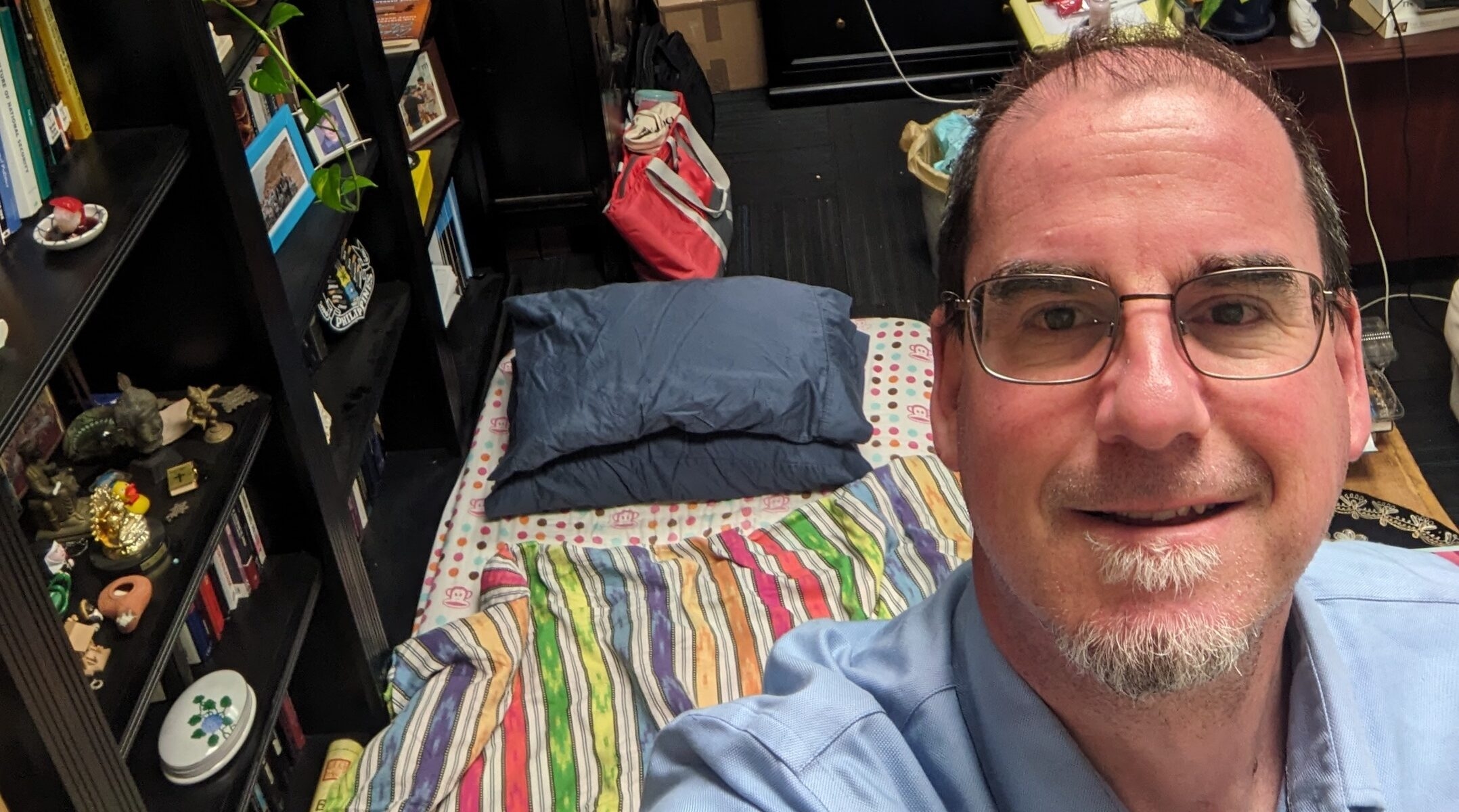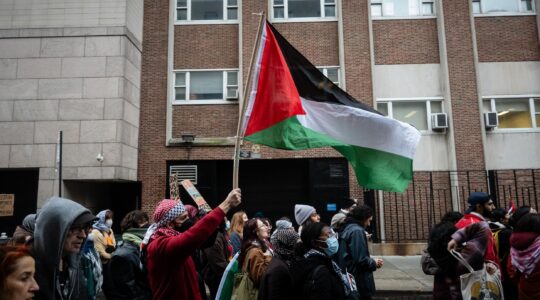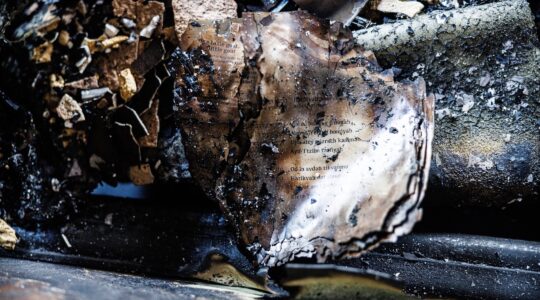(JTA) — Israel studies professor Ron Hassner has ended his two-week sit-in at his University of California, Berkeley office, saying the school had made sufficient commitments to satisfy his concerns about the safety of Jewish students on campus.
Over the last two weeks, the university has pledged to monitor an ongoing pro-Palestinian protest in the center of campus that left many Jewish students feeling harassed. It has also joined a consortium operated by Hillel International, the Jewish campus organization. And Ran Bar-Yoshafat, an Israeli speaker whose talk the university canceled last month amid violent protests, returned to campus this week to speak.
What’s more, Hassner said, the university has assured him of plans to fund antisemitism and Islamophobia training for staff and student leaders, and surprised him by saying that students would soon have the option to minor in Israel studies, his field.
Those recent developments, Hassner concluded, met the demands he laid out when he moved into his office — which has a bathroom but no shower — earlier this month.
“I have started packing my bags so that I can go home to my family,” Hassner wrote in an email to students Thursday, inviting them to a celebratory Shabbat dinner at the campus Chabad the next night.
A representative for UC Berkeley did not immediately respond to a request for comment.
Campuses across the country have dealt with a host of antisemitism concerns since the outbreak of the Israel-Hamas war in October, but Berkeley has occupied a spotlight for weeks. A planned Feb. 26 talk by Bar-Yoshafat, an Israeli army reservist and pro-Israel speaker, was shut down after a pro-Palestinian protest turned violent, with people assaulting Jewish students and damaging campus property. And an ongoing pro-Palestinian protest at Sather Gate, a central campus gathering spot, has reportedly included blocking passage through campus, targeting Jewish students and blasting audio purportedly of Israel’s bombing campaign in Gaza.
These incidents have triggered a series of responses. Berkeley’s leadership announced an investigation into the Feb. 26 events, which are also now the subject of a Title VI discrimination investigation at the U.S. Department of Education as well as a congressional investigation. Meanwhile, Hassner, chair of the school’s Israel Studies department, moved into his office and announced he would not leave until more decisive action was taken, a protest that has been taken up by faculty at other campuses in California.
This week, Hassner appears to have gotten his wish. On Monday, Bar-Yoshafat returned to Berkeley at the invitation of Chabad and the campus pro-Israel group Tikvah and spoke to an audience of 150 at a tightly controlled event. There, according to the Jewish News of Northern California, he refuted campus pro-Palestinian groups’ claims that he supported killing innocent people in Gaza while also insisting Israel needed to continue its campaign “to go inch by inch to find all the Hamas terrorists and weapons.”
Also this week, UC Berkeley Chancellor Carol Christ told the campus community that hired observers would begin patrolling the Sather Gate protest to monitor any instances of harassment or other kinds of violations.
“Political protest is a protected — indeed a valued — activity on the Berkeley campus, it is also subject to time, place, and manner regulations,” Christ wrote. She also hinted that new guidelines for protests might be put in place in the near future.
This week Hillel International announced that UC Berkeley is joining its Campus Climate Initiative, a program designed to provide schools with antisemitism training, along with the entire University of California system and dozens of other universities. “The University of California is committed to ensuring that our campus communities are safe, welcoming, and inclusive for all – including for our Jewish students, faculty, and staff,” Michael Drake, president of the UC system, said in a press release.
Partially in response to faculty statements about the war, Berkeley’s Board of Regents has also been debating a new policy that would limit political speech on university websites; this week the board delayed a vote on the policy until May.
The return of Bar-Yoshafat and a more forceful response to Sather Gate were two of Hassner’s three protest demands. In his letter, Hassner said that he had also received assurance that the university would fund his third demand — mandatory antisemitism and Islamophobia training for any students in leadership positions — and that it would also create a new minor in Israel Studies, which he welcomed as “fantastic news” although it had not been among his demands.
“Attacks and intimidation of students on U.S. campuses are designed to drive some students away. The new minor in Israel Studies will do the opposite,” Hassner wrote. “It will attract students from all backgrounds to our campus precisely because we are the greatest campus in the country for studying the complexities of Judaism and Israel in an inclusive and rigorous manner.”
JTA has documented Jewish history in real-time for over a century. Keep our journalism strong by joining us in supporting independent, award-winning reporting.






